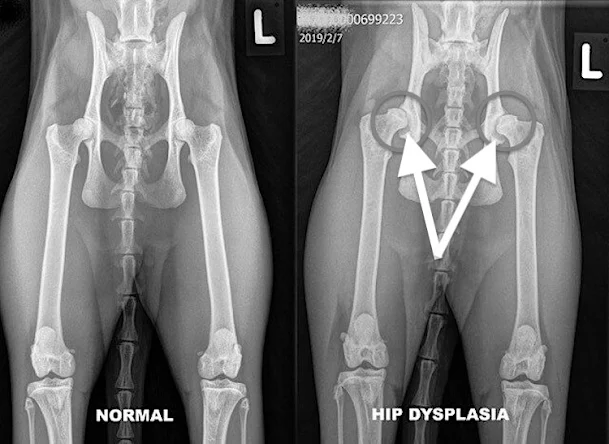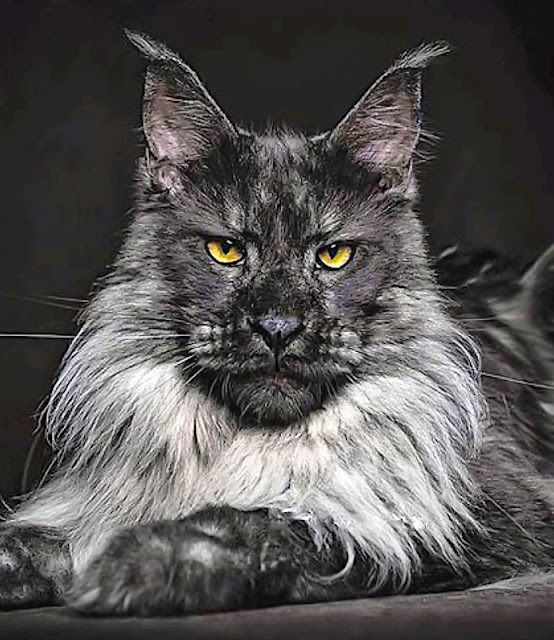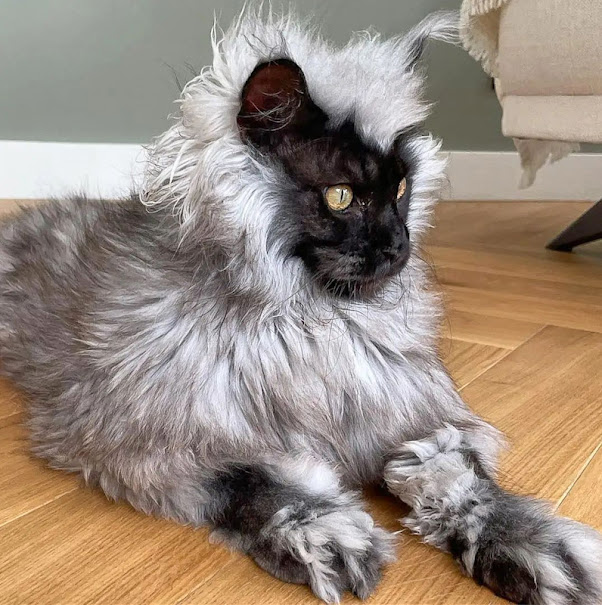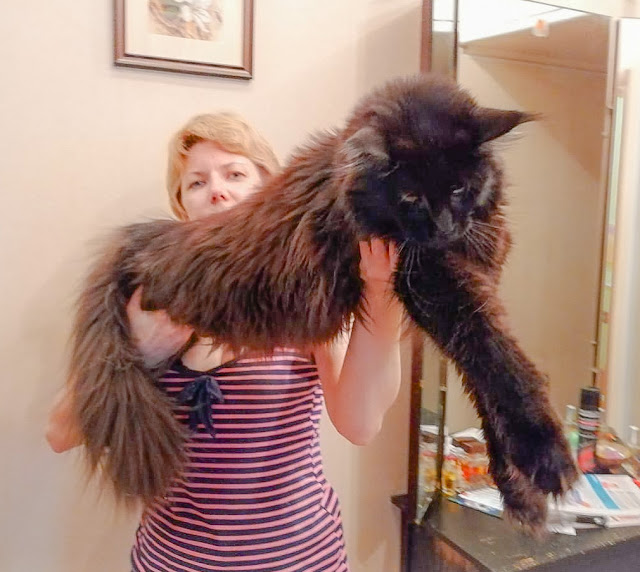Hip dysplasia in Maine Coons is more severe when it affects both hips
This has to be short because I am reading off the summary to a study called Demographics of Hip Dysplasia in the Maine Coon cat. The Researchers had access to the complete hip dysplasia registry collected by the Orthopaedic Foundation for Animals through April 2015. The registry contained information on 2,732 cats of which 99.1% were Maine coon cats i.e. 2,708. They found that hip dysplasia is more severe in bilateral than in unilateral cases. This means when both hips are affected the severity of the disease is worse. They also found that the disease becomes more severe with increasing age. Finally, the overall incidence as per this registry was 24.9% of Maine Coon cats. To put that another way, 24.9% of Maine Coons had hip dysplasia in this registry. The number was slightly higher for males at 27.3% than females at 23.3%. The scientists suggested that further studies are needed to be performed among other breeds and geographic locations in order to better understand the demographics of feline hip dysplasia.
I will speculate as to why hip dysplasia is more severe if both sides are affected. It is because they both negatively affect the opposite side placing further pressure on the joint.
 |
| Hip dysplasia in cats. X-ray from SLU. |
This short post is not about criticising the Maine Coon or its breeders. It is simply presenting the facts scientifically. The health of this popular breed should interest all who admire it.
For people who don't know or those that are unsure, hip dysplasia is a disorder caused by the abnormal development of the hip joint. It is genetically inherited and a polygenetic trait which means that more than one gene is involved. The normal hip joint is a ball-and-socket joint in which the ball fits quite tightly into the socket. In a dysplastic hip, the head of the femur i.e. the ball, fits loosely into a poorly developed shallow socket called an acetabulum. This causes joint instability. The joint becomes loose and unstable and degenerates causing pain and abnormal movement.











Comments
Post a Comment
Please share your Maine Coon experiences.